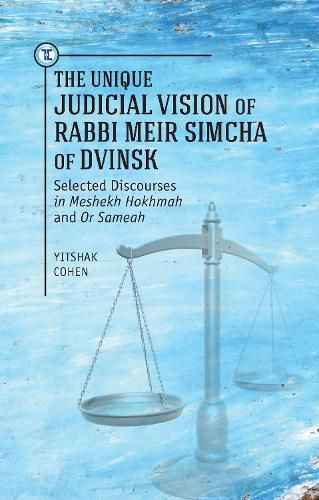Readings Newsletter
Become a Readings Member to make your shopping experience even easier.
Sign in or sign up for free!
You’re not far away from qualifying for FREE standard shipping within Australia
You’ve qualified for FREE standard shipping within Australia
The cart is loading…






This book analyzes the exceptional normative impact of R. Meir Simcha Hacohen’s Biblical commentary, Meshekh Hokhmah, and his halakhic commentary, Or Sameah. It examines the reliance of the poskim on R. Meir Simcha’s innovations and hermeneutic methods as well as their view of his interpretations that broadened or narrowed the scope of Maimonides’ rulings. The book explores the broad-based judicial principles underlying R. Meir Simcha’s legal decisions and approach to Jewish law.
It further examines how his legal creativity was impacted by metahalakhic principles that guided him in addressing changing historical and social realities. The book also considers R. Meir Simcha’s unique attitudes toward gentiles. His approach attests to his innovativeness and his halakhic moderation, as he tried to rule as leniently as possible on matters concerning non-Jews. In this book, R. Meir Simcha is shown to be a truly influential rabbi whose contributions will long be a source of study and discussion.
$9.00 standard shipping within Australia
FREE standard shipping within Australia for orders over $100.00
Express & International shipping calculated at checkout
This book analyzes the exceptional normative impact of R. Meir Simcha Hacohen’s Biblical commentary, Meshekh Hokhmah, and his halakhic commentary, Or Sameah. It examines the reliance of the poskim on R. Meir Simcha’s innovations and hermeneutic methods as well as their view of his interpretations that broadened or narrowed the scope of Maimonides’ rulings. The book explores the broad-based judicial principles underlying R. Meir Simcha’s legal decisions and approach to Jewish law.
It further examines how his legal creativity was impacted by metahalakhic principles that guided him in addressing changing historical and social realities. The book also considers R. Meir Simcha’s unique attitudes toward gentiles. His approach attests to his innovativeness and his halakhic moderation, as he tried to rule as leniently as possible on matters concerning non-Jews. In this book, R. Meir Simcha is shown to be a truly influential rabbi whose contributions will long be a source of study and discussion.